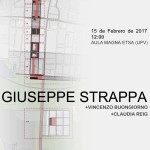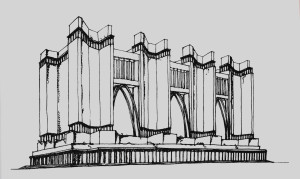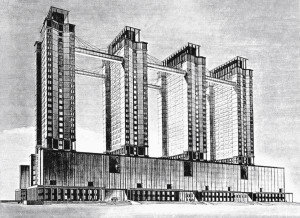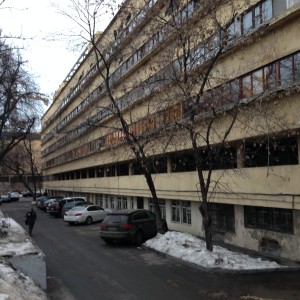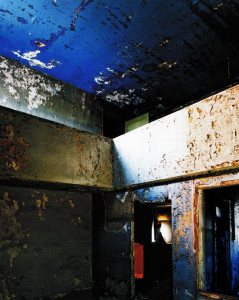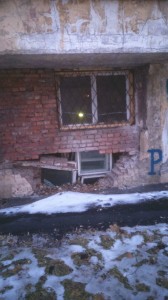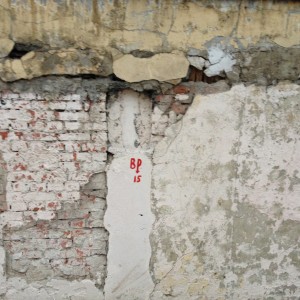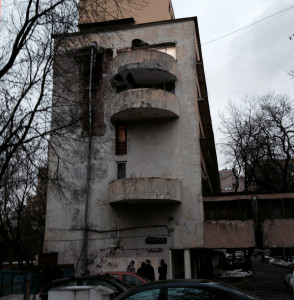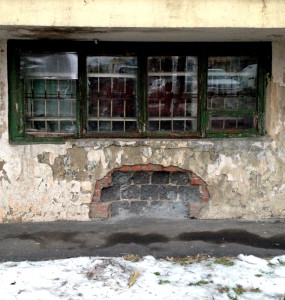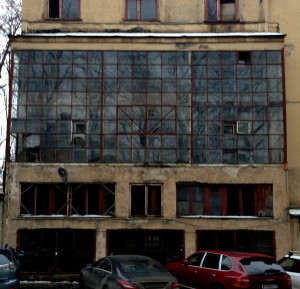Tag Archives: Giuseppe Strappa
G.STRAPPA, V. BUONGIORNO, C. REIG, El metodo de diseno “processuale” El caso de San Martin de las Flores en San Pedro de Tlaquepaque (Mexico) – UNIVERSITAT POLITECNICA DE VALENCIA – AULA MAGNA – 15 de Febrero de 2017
S. Lisagor, M. Ginzburg, Narkomtyazhprom building in Moscow, 1934
NARKOMFIN TODAY
реализм/realism – moscow, november 24-25, 2016
реализм/realism
Lomonosov Moscow State University, Faculty of History (Lomonosovsky prospekt, 27,building 4)
The Institute of Russian Realist Art (Derbenevskaya Street, 7, building 31)
November 24, 2016
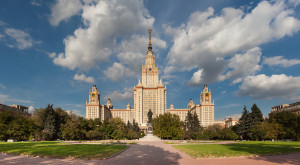
November 24, 2016
10:00 – 10:30 – registration of the participants
10:30 – 10:50 – opening of the conference
Welcome Speech
Ivan Tuchkov, Lomonosov Moscow State University, Dean of the Faculty of History, Professor
Claudia Scandura, «La Sapienza» University of Rome, Department of Philology, Associate Professor
Victoria Devdariani, Lomonosov Moscow State University, Faculty of History, International Relations Department, Senior Official
Morning Session: 10:50 – 14:00
10:50 – 11:50
Moderator: Ivan Tuchkov, Lomonosov Moscow State University
Giuseppe Strappa, «La Sapienza» University of Rome
The Need for Realism in Architecture
Claudia Cieri Via, «La Sapienza» University of Rome
The Ideology of the Ancient Triumph between Art and Politics. Function and Interpretation of Ancient Models in Italian Art of the 1930s
11:50 – 12:10 – coffee-break
12:10 – 13:30
Moderator: Ekaterina Kochetkova, Lomonosov Moscow State University
Emilio Mari, University of Naples «L’Orientale»
From Imperial Gardens to the Parks of Culture and Leisure. Subject and Space in the Culture of Entertainment
Anna Vyazemtseva, University of Insubria, Varese-Como – Research Institute for History and Theory of Architecture and Urbanism, Moscow
Soviet Architecture in Italy and Italian Architecture in USSR of 1920-1940s: Exhibitions, Publications, Co-Operative Projects. The History of the Collaboration and the Problem of Mutual Perception
Olga Muromtseva, Moscow State Stroganov Academy of Design and Applied Arts
Mario Sironi. A Hypothesis of the Fascist Art Style
13:30 – 14:00 – questions & panel discussion
14:00 – 15:00 – lunch
Afternoon Session: 15:00 – 18:00
15:00 – 15:40
Moderator: Giuseppe Strappa,«La Sapienza» University of Rome
Ekaterina Kochetkova, Lomonosov Moscow State University
‘Nouveau Réalisme’ in Landscape Art: Niki de Saint Phalle’s Giardino dei Tarocchi and Its Historic Prototypes
Stefano Velotti, «La Sapienza» University of Rome
What Realism? Reflections on Gerhard Richter
15:40 – 16:00 – coffee-break
16:00 – 17:30
Moderator: Marina Lopukhova, Lomonosov Moscow State University
Ornella Discacciati, Università degli Studi della Tuscia, Viterbo
Longing for a Dream: Happy Moscow by Andrey Platonov
Claudia Scandura, «La Sapienza» University of Rome
“To Strive, to Seek, to Find and Not to Yield”. Realistic and Romantic Heroes in Venjamin Kaverin’s Novels
Enzo Amato, International Institute for the Study of the Neapolitan Music of the eighteenth century, Naples
The Neapolitan Music during the Eighteenth Century and the Development of Opera in Russia. When reality becomes Fiction and Fiction Reality
17:30 – 18:00 – questions & panel discussion
November 25, 2016
The Institute of Russian Realist Art (Derbenevskaya Street, 7, building 31)
10:00 – 10:30 – registration of the participants
10:30 – 10:50 – opening of the conference
Welcome Speach
Alexey Ananiev, founder of The Institute of Russian Realist Art
Nadezhda Stepanova, art-director of The Institute of Russian Realist Art
Morning Session: 10:50 – 14:00
10:50 – 12:40
Moderator: Ksenia Karpova, The Institute of Russian Realist Art
Olga Kalugina, Research Institute of the Theory and History of Art of Russian Academy of Arts, Moscow
Reception of the Sculptural Impressionism in the Russian Art of the early 1900s. Paolo Trubetskoy and the Sculpture Class of the Moscow School of Painting, Sculpture and Architecture
Elena Kamenskaya, Moscow Museum of Modern Art
Italy in Art and Life of Alexander Iacovleff (1887–1938)
Elena Gribonosova-Grebneva, Lomonosov Moscow State University
The Work of Kuzma Petrov-Vodkin at Italian and other International Exhibitions. On the European Representation of Russian Art in 1910–1930s
12:40 – 13:00 – coffee-break
13:00 – 13:30
Moderator: Claudia Scandura, «La Sapienza» University of Rome
Alessandro Alfieri, «La Sapienza» University of Rome
Barnet’s Film between Realism and Poetry
Marina Toropygina, The Russian State Gerasimov University of Cinematography, Moscow
On the Realism in Film: Style, Iconography, and Perception
13:30 – 14:00 – questions & panel discussion
14:00 – 15:00 – lunch
Afternoon Session: 15:00 – 18:00
15:00 – 16:30
Moderator: Elena Gribonosova-Grebneva, Lomonosov Moscow State University
Alexander Borovsky, The State Russian Museum, Saint Petersburg
Figurative Art of the 1930s in Russia and Italy: Rhymes
Elena Voronovich, The State Tretyakov Gallery, Moscow
Italy in the Paintings of Soviet Artists, 1920-1930s
Matteo Lafranconi, Palazzo delle Esposizioni, Rome
Rome 1935. Aleksander Deyneka in Rome and the II Quadriennale d’Arte
Victoria Devdariani, Lomonosov Moscow State University
Art Collections of the Italian Novecento Art in the National Gallery in Berlin. The Pushkin State Museum of Fine Arts in Moscow and the State Hermitage Museum in Saint Petersburg
16:30 – 16:45 – coffee-break
16:30 – 17:30
Moderator: Ekaterina Kochetkova, Lomonosov Moscow State University
Vera Otdelnova, State Institute for Art Studies, Moscow
MOSKH on the Move: What were Soviet Painters Looking for in Italy?
Ksenia Karpova, The Institute of Russian Realist Art, Moscow
Art in Real Time: the Soviet Severe Style and Italian Neo-Realism
Igor Volkov, Lomonosov Moscow State University – Multimedia Art Museum, Moscow
Staged and straight approach in Soviet photography in mid 1950s – early 1970s
17:30 – 18:00 – panel discussion and closing remarks
